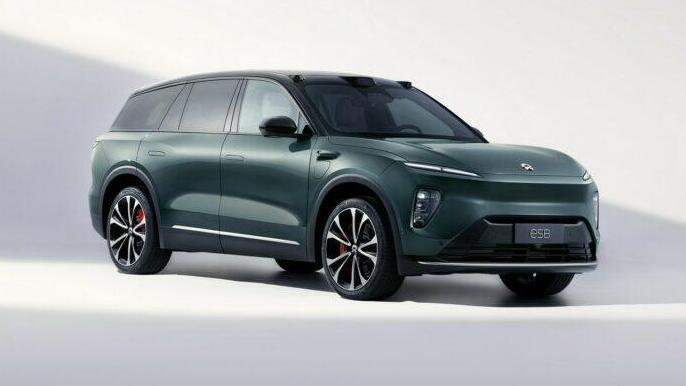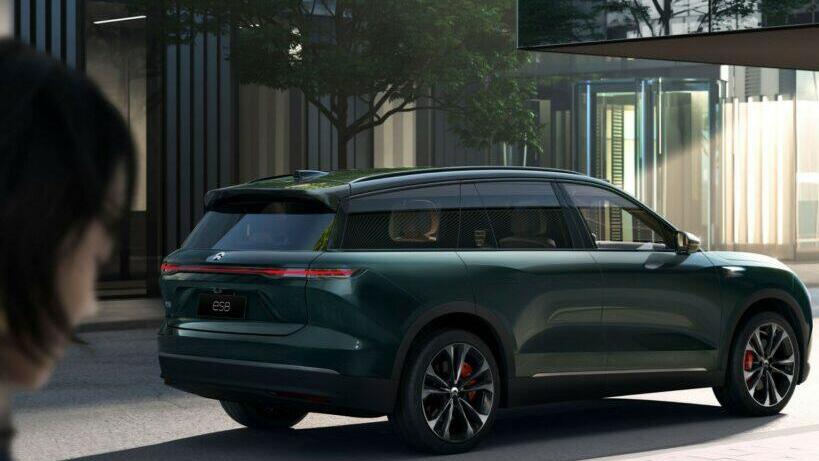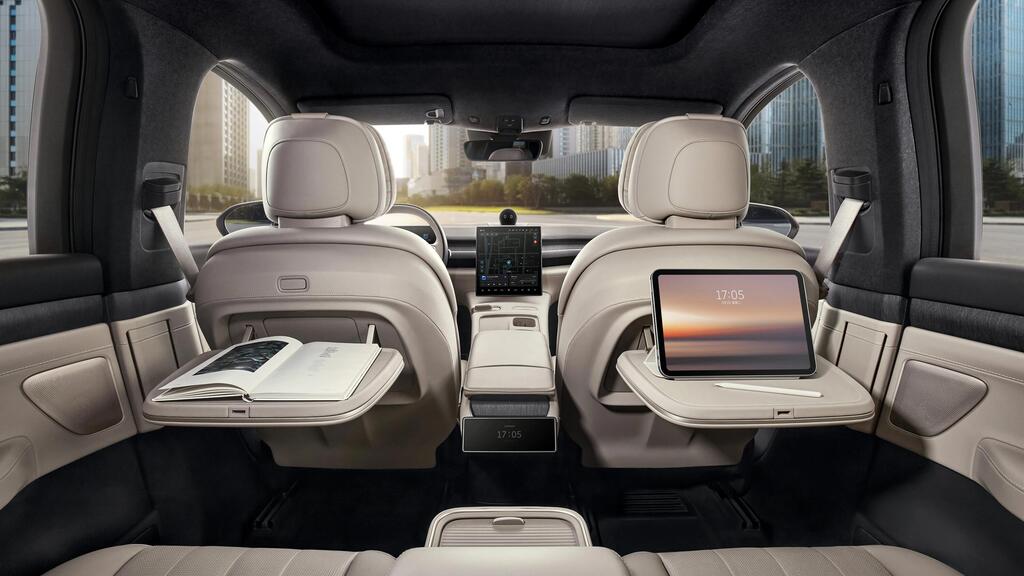Nio continues to expand its model lineup, introducing the EL8 in Europe—a massive SUV, marking the second generation of the ES8, initially launched in 2017 and sold in small numbers in Israel.
The new model features six seats and aims to compete at the high end of the luxury segment, rivaling the Mercedes EQS SUV and BMW iX. Priced at 83,000 euros in Germany, it could reach 620,000 shekels in Israel, following the pricing strategy of the importer.
Notably, while Nio's SUVs are marketed in China with the ES prefix, they are branded as EL in Europe (and Israel) due to Audi's trademark on model names starting with S.
The EL8 boasts generous dimensions: 510 cm in length (2.5 cm shorter than its Mercedes counterpart), 175 cm in height (3 cm taller), 199 cm in width (3 cm wider), and a 307 cm wheelbase (14 cm shorter). Despite its size, Nio proudly cites a drag coefficient of 0.25, impressive for a vehicle of its type. The EL8 is equipped with dual electric motors delivering a combined 655 horsepower, enabling a 0-100 km/h acceleration in just 4.1 seconds. As with other Nio models, two battery packs will be available—75 kWh offering a 390 km range or 100 kWh providing a 510 km range.
In China, a massive 150 kWh battery is available, boasting nearly 900 km of range per local standards, but this option won't be offered in Europe or Israel. Nio aims to compete with well-regarded rivals by offering a host of luxurious features, including six individual seats with 12 or 14 adjustment options for the rear, an optional rear refrigerator, a fragrance system promising a "fresh forest scent," LED lighting mimicking "waterfalls," a 23-speaker sound system with 2300 watts, double-glazed windows, "hot stone" massage seats, air suspension, and adaptive damping that adjusts to road conditions in real-time.
The central screen is 12.8 inches, with the brand's familiar voice assistant above it, a large head-up display, and an additional 6.6-inch screen for rear passengers. Nio's advanced safety system includes 33 cameras and sensors, promising future expanded autonomous capabilities.
Our take: Nio entered Western markets with high ambitions and a broad lineup designed to compete with German luxury manufacturers. So far, success has been limited, as other Chinese brands (like Xpeng and BYD) offer highly capable electric models at much more attractive prices, and at higher price points, it's challenging to compete with the long-established reputations of European luxury brands.
The EL8 follows this pattern. Unless Nio introduces a game-changer—such as widespread battery-swapping stations in Europe—it may struggle. A surprisingly low price could help, but we wouldn't count on it.




